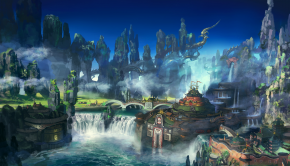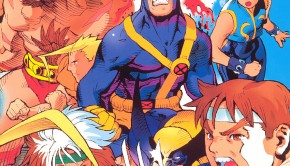Name-Dropping Sonata
I know you guys are not going to tell anyone, so let me share a little secret. At times, I did pretend I knew a lot more about a subject than I really did in order to seem smarter. Yeah, I did that. All you have to do is say whatever it is you want to say with the straightest face possible and people might believe you.
My range of deceptions is pretty wide: soccer, politics, cars, etc. My favourite item, though, has got to be Physics. Here’s how I appeared smarter: A friend comes to me looking for help with a problem. I take a look at it, and I have no clue whatsoever on even how to being solving it. Now, this part is important: you have to think out loud, but always in incomplete sentences, like “Have you tried… no, it won’t work, that [name formula] won’t work in this case.” The last part is tricky, because it involves pure, dumb luck. You have to be interrupted by a friend and he / she cannot be interested in that problem. If it all works out, no one will ever know you were totally stumped.
Eternal Sonata is a bit like that. See, when I heard there were making an RPG starring Frédéric Chopin, I was thrilled. Instead of relying in mythological names and what not, we would get a game which would focus on classical music and its history. And to be honest, that’s true. What bothers me is how the terminology was applied.
First of all, character names. I’m sorry, but “Allegretto” is ridiculous as a name. So are “Polka”, “Claves,” and, my absolute favorite, “Count Waltz.” Not to mention the names of some of the cities: “Baroque?” “Forte?” “Oh, no, there’s a war brewing between the Baroquians and the Forters!” See how bad it sounds? They should’ve done some research on the Romantic era, the period Chopin lived in, to create the names.
How about some homages to composers of the time? You could have a party of Frédéric, Klara [as in Clara Schumann], Franz [Liszt/Schubert], Rick [as in Richard Wagner], and so on. Or maybe the homage could be to famous compositions: Carmen [from Bizet’s opera], Holländer [Die fliegende Holländer, or “The Flying Dutchman,” one of Wagner’s operas], etc. This took me around five minutes, and they’re not as bad as Salsa, Falsetto, and March. As for the war between kingdoms, the Romantic era is pretty long so I’m sure there had to be a war of some sort between two countries. Find out what they are and make similar kingdoms in the game. It’s not so hard.
What really bothers me is that people who are interested in the game but don’t know a lot about music will probably do some research about the terminology and will see that it makes no sense whatsoever. “Huh? Hanon was a pedagogue. Why are there hills named after him?” Didn’t Final Fantasy motivate us to go all over the place looking for the origins of the summoned monsters’ names? And as I’m sure there’s someone out there who’s bothered by Shiva being a woman, so am I by Eternal Sonata.
I would feel so used if I were classical music. Used and violated. I mean, those names aren’t needed at all; you change them and the whole façade is gone. Eternal Sonata is a conventional Japanese RPG, but tries to hide it with a fancy music overcoating. You don’t fool me, tri-Ace. Not one bit. Eternal Sonata simply name-drops music terminology to seem more thorough, but it’s doing it all wrong. Here are some ideas for future music-inspired RPGs:
– Dynamics: “Forte” isn’t a kingdom. It’s one of the many dynamics music can be written in. It means “strong,” “loud.” How about applying that to magic attacks? If a spell is marked f, for “forte,” it’s a strong spell. Other dynamics, such as “piano” (“soft”), “mezzo piano” (“moderately quiet”), etc. would denote different strengths.
– Tempo: “Black x white” is not a good battle system. Could they have been referring to the difference between black and white notes? Still, a tempo-based battle system would make fights a lot more exciting. Since there are many markings for tempo, like “allegretto,” why not have spells and skills revolve around that idea? A slower tempo might be good for landing attacks and healing spells, but a faster tempo might allow you to dish out the all-powerful spells, at the cost of a reduced hit rate.
– Techniques: Characters may attack with swords and the like, but what’s stopping them from making good use of musical techniques in their battle repertoire? A Glissando Slash, for instance, is a quick and thorough attack, with a fast recovery rate.
– Plot: How about making the plot more related to music? There’s the concept of musica universalis, the myths surrounding the completion of Mozart’s Requiem (which could turn into a treasure hunting plot), or even a story told metaphorically about the advancement of harmonic and tonal freedom, set against a ruthless dictatorship of old rules. Want to see a game discussing what music is? There you have it.
There are a lot of venues to visit in the world of music. I may disagree with what Eternal Sonata did, but I believe it was an important first step towards the popularization of classical music in videogames. I can only hope more games will follow suit and instead of the usual politics-and-religion plots, we’ll be treated to inquiries regarding what is around us at all times: sound.
Posted on November 11, 2007 by Eduardo Friedman. Last modified on February 27, 2014.














